The Maclean’s 2014 Power List, Part 2
The second part of our unapologetically subjective annual rankings includes a hockey lifer, a film-star fixer, and a fair share of politicians
Share

Check out the first part of our 2014 Power List, those ranked #50-35, here.
This year’s Power List—the second annual compilation by Maclean’s writers and editors of this unapologetically subjective ranking—highlights the clout of a truly diverse selection of 50 influential Canadians. Our list ranges from household names to: who’s that? Pinnacle corporate predators rub shoulders here with non-profit paragons. To help you understand how we picked them, you’ll see, beside each name, three icons. We’ll be unveiling more and more of our list every day until Canada’s 15 most powerful people are revealed on Friday.
In the meantime: Are you annoyed by our choices? Angered by our omissions? We invite you to write in our comments and offer your own powerful case for a different list.
This symbol indicates our weighting of the individual’s institutional standing. No surprise that the newly named head of Canada’s biggest bank ranks the maximum five. On the other hand, while we detect serious power in the creative clout of a certain movie director, he doesn’t head a studio or produce his own films, so we award him only a single blue pillar icon.
This tells you how much timing mattered in our choice of a given individual, based on the way things look to us in late 2014. Power expresses itself, after all, through the tasks of the moment. You won’t have to read very far into our list to see that we recognize the pressing priority of the Ebola challenge: Five clocks to a doctor near the centre of the crisis. The same principle works in reverse: Names from sports that made our 2013 list because we were looking ahead to the 2014 Winter Olympics in Russia have fallen off entirely.
The power that flows from great ideas is perhaps the most appealing kind. So we enjoy awarding multiple light bulbs to, as you’ll see, a university resident with new notions about linking academia to the community, or a young doc with new ways of thinking about the health of old folks.
Maclean’s 2014 Power List, Part 2
- 34. Lisa LaFlamme
- 33. Heather Reisman
- 32. Rob Merrifield
- 31. Jason Kenney
- 30. John Baird
- 29. Stephen Poloz
- 28. Brad Wall
- 27. Don Iveson
- 26. Tom Renney
- 25. Marianne McKenna
- 24. Alia Hogben
- 23. Galen G. Weston
- 22. Jim Prentice
- 21. Naomi Klein
- 20. Thomas Mulcair
- 19. Jean-Marc Vallée
- 18. Art Sterritt
- 17. Joe Oliver
- 16. Christy Clark
#34: Lisa LaFlamme
Anchor-in-chief
![]()
![]()
![]()
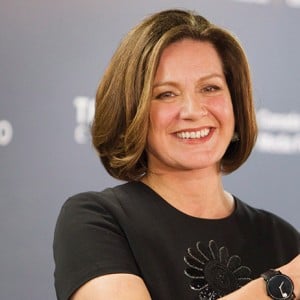 |
Lisa LaFlamme, 50, has been the face and voice of CTV National News, Canada’s most watched news show—with more than one million viewers per night—since she succeeded Lloyd Robertson as chief anchor in 2011. She’s the second woman to anchor a weeknight national newscast in Canada, this year winning the RTDNA award for best newscast for the third year in a row. LaFlamme, originally from Kitchener, Ont., spent 20 years as a foreign correspondent, never saying no to an assignment. She has reported from places such as war-torn Afghanistan—where in 2008, she was shot at by Taliban fighters—and Iraq, where she caught a parasite that ravaged almost half of one kidney. LaFlamme told a magazine at the University of Ottawa, her alma mater, her secret to success: “Keep your head down, work hard, don’t expect anything, don’t get too big for your boots.” — Rachel Browne
#33: Heather Reisman
The best seller of bestsellers
![]()
![]()
![]()
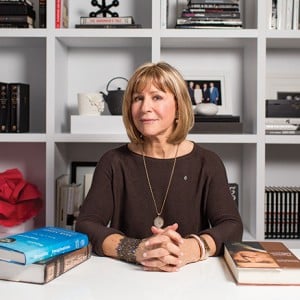 |
The chief executive officer and owner of a chain that moves almost half the books sold in Canada will always have literary opinions of significance to the entire book trade. But Heather Reisman, 66, is no aloof, profit-focused CEO. Indigo’s self-described “chief book lover” is the very face of her company and a voracious, wide-ranging reader: “Novels, poetry, biography, business stories, all kinds of books,” she says. Her intense personal interest means Reisman’s take matters like no one else’s, right down to individual titles. More than anyone else in the country, Reisman can make a bestseller, says one publishing industry observer, “as she did with Lawrence Hill’s Book of Negroes through her enthusiastic early adoption in her Heather’s Picks and in-store interviews.” Meaning, of course, that her silence can also be deadly.
For everyone in the book trade who snarks over the increasing space in Indigo stores devoted to candles, yoga mats and dinnerware, there is an admirer to praise Reisman’s business acumen—and what that’s meant to books in Canada. “If bookshops are still alive here—hers particularly, but also others that have learned from her,” says the publishing executive, “it’s because she was one of the first anywhere to bring in other items to support the core business. Now she’s an international trendsetter in that area.”
The effort to keep her chain flourishing isn’t just a labour of love, says Reisman, who with husband Gerry Schwartz, 72, the billionaire owner of Onex Corp., forms one of Canada’s more formidable power couples. “I totally think the book business has a future. Physical books will be with us for a long time to come—there’s something about their physicality—and Canadians’ commitment to reading will only grow. That’s just who we are.” — Brian Bethune
#32. Rob Merrifield
Pipeline politics
![]()
![]()
![]()
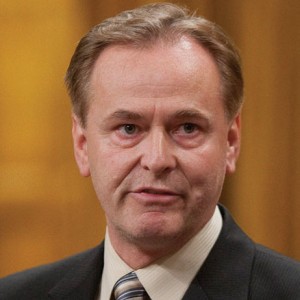 |
By retiring from federal politics to become Premier Jim Prentice’s man in Washington, Rob Merrifield trades second-tier status in Ottawa for a front-line post as Alberta’s envoy in the fight to get Canadian oil to the U.S. market. A former co-chair of the Canada-U.S. interparliamentary group, Merrifield arrives at an interesting time to continue the six-year battle to make Keystone XL a reality: a newly elected Republican majority takes power in the U.S. Senate in January, eager to legislate the cross-border pipeline into reality. One obstacle: a potential veto by President Barack Obama, who wants a lengthy review by the State Department to be completed and is under pressure from environmental groups to reject the project. Merrifield will have to walk a fine line between exploiting Republican attempts to use the pipeline as a partisan weapon, while preventing Canadian oil from becoming politically toxic for Democrats. — Luiza Ch. Savage
#31. Jason Kenney
Travel, schmooze, speak, inspire
![]()
![]()
![]()
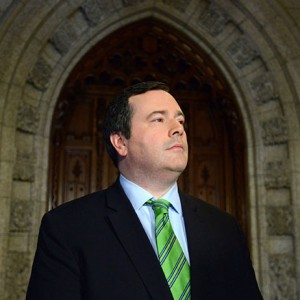 |
He’s everywhere. The minister of employment still does what he used to do when he was minister of immigration: Travel constantly, schmooze with everyone, speak eloquently on Conservative values, pick fights with Conservatives’ foes, back his leader faithfully, effortlessly inspire rumours he wants the boss’s job someday. No one in cabinet has more freedom to define the job his way than Jason Kenney. Having lined up a surprisingly large fraction of the immigrant vote for the Conservatives in 2011, he’s now trying to win respect for community colleges. They deserve “parity of esteem” with university grads, he says at every stop. College alumni vote Conservative far more often than university grads do. Whatever else he does, Kenney remains the Minister Responsible For Conservative Electoral Hopes. — Paul Wells
#30. John Baird
Bring on the bad guys
![]()
![]()
![]()
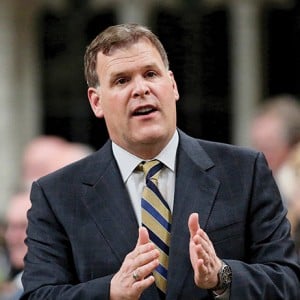 |
When the Conservative party reaches out to its supporters via email, it doesn’t simply tout its commitments to cut taxes and get tough on crime: it also talks about Stephen Harper’s leadership on the world stage. Foreign policy isn’t an afterthought for the Conservatives, it’s a key facet they are trying to sell ahead of next year’s vote. And while most of the credit is awarded the Prime Minister, it is John Baird who Stephen Harper has entrusted as the day-to-day face of government policy. Long one of Harper’s most able combatants and talented ministers, Baird is well-suited to the task of projecting the straightforward strength in foreign policy the government wants as its hallmark. Now, instead of fending off the opposition parties in question period each afternoon, he gets to take on the globe’s bad guys and scourges—though it should also be noted that his contributions in the House of Commons in the lead-up to the launching of airstrikes in Iraq were among the government’s best moments. — Aaron Wherry
#29. Stephen Poloz
Until things look up
![]()
![]()
![]()
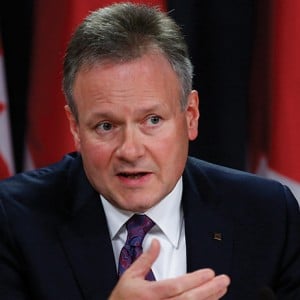 |
The Bank of Canada governor is not on this list because he’s a reliable source of good cheer. Stephen Poloz recently gave a speech, for instance, in which he noted that some 200,000 young Canadians are unemployed, underemployed, or have gone back to school to try to somehow boost their job chances of finding a job. He didn’t make news with that speech. But he did the day after by telling a parliamentary committee that young Canadians should consider taking unpaid work until things look up. The remark wasn’t well received. But all might be forgiven if Poloz, an expert on exports, helps orchestrate a sustained recovery in Canadian sales to our biggest market. “The good news for Canada is that the U.S. economy is gaining traction, particularly in sectors that are beneficial to Canada’s exports,” Poloz said early this month. Past experience suggests Bank of Canada governors get credit when that sort of prediction pans out. — John Geddes
#28. Brad Wall
Everything but a cup that’s Grey
![]()
![]()
![]()
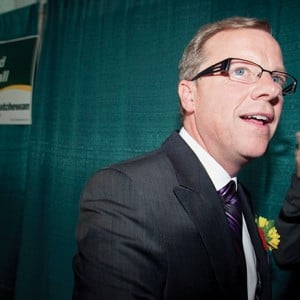 |
You’re tired of hearing it, but Brad Wall is still Confederation’s most popular premier according to Angus Reid’s approval ratings. Robert Ghiz’s surprise resignation in P.E.I. will also leave him as its longest-serving. Wall’s Saskatchewan Party is navigating a scandal over a SaskPower plan to install smart meters province-wide; 105,000 of the meters now have to be removed after they apparently caused nine minor house fires. But the CEO of the utility company has taken the fall, and other political conditions are looking favourable for the Sask Party. Earlier this month Wall hosted a summit with B.C. Premier Christy Clark and new Alberta Premier Jim Prentice: although he is the youngest of the trio, circumstances have made him the senior partner in a powerful western trade bloc that contains three of the four “have” provinces. Now if the only Riders could just go on another decent playoff run… — Colby Cosh
#27. Don Iveson
Making it so
![]()
![]()
![]()
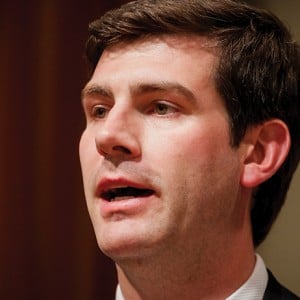 |
Naheed Nenshi’s li’l northern buddy? It’s an easy assumption to make. The political playbook of Edmonton’s mayor borrows heavily from Nenshi’s, and the two of them are consciously teaming up to rebalance the Alberta treasury in favour of urban development. Like Calgary’s Nenshi, Don Iveson has succeeded in rallying youth to humdrum political activity. Like Nenshi he’s not afraid to emphasize his populist credibility by nerding out shamelessly in a Star Trek uniform. What one notices belatedly is that Iveson might actually be better at all of this than Canada’s Favourite Mayor. In last fall’s municipal election, Iveson was a baby-faced two-term councillor going up against a more experienced colleague and a popular newspaper columnist. Of the city’s 219 polling stations, Iveson won an unbelievable 218. He will need time to wrestle with the legacy of debt and tied-up city revenue left by his ambitious predecessor, Stephen Mandel. But at the tender age of 35, time is something he does have. — Colby Cosh
#26. Tom Renney
Ice-cold practicality
![]()
![]()
![]()
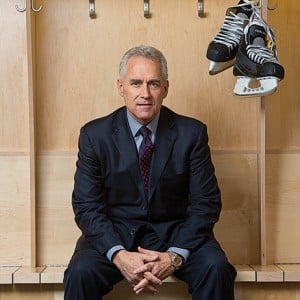 |
Long counted as one of the more progressive minds in hockey, Tom Renney is now steward of Canada’s game at its grassroots level. The well-travelled NHL coach—Renney saw head-coaching stints with Vancouver, Edmonton and the New York Rangers—was named president and CEO of Hockey Canada in July, beating out what board members described as an outstanding field of candidates.
The 59-year-old’s reputation as a conciliator and communicator will serve him well as he seeks consensus among Hockey Canada’s 13 regional branches representing 635,000 players. And there’ll be no shortage of controversy to test his judgment. The governing body is grappling with issues ranging from body-checking to concussions to the negative influence of overbearing parents. It has also grown more commercial, merchandising its maple-leaf logo, aggressively marketing its marquee tournaments and doing its utmost to capitalize on Olympic hype. Fortunately, Renney, who hails from Cranbrook, B.C., has a coldly practical side, as well as a passion for the game. Coaching in the Big Apple will teach you that. — Charlie Gillis
#25. Marianne McKenna
Building harmony
![]()
![]()
![]()
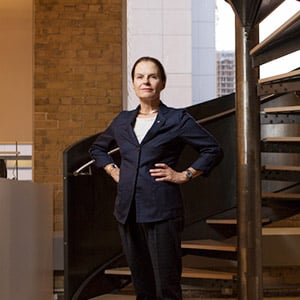 |
In the era of “starchitects”—whose sculptural showpieces often stand defiantly apart from what’s around them—her buildings can seem understated. Marianne McKenna’s celebrated Royal Conservatory Telus Centre for Performance and Learning in Toronto, for instance, elegantly combines heritage buildings and warm new spaces. It’s pure harmony. Born in Montreal, McKenna is a founding partner of architecture firm KPMB. “We’ve been embraced as a team,” she has said of the close-knit Toronto office’s influence. KPMB’s landmarks in their home city include the recent expansion of University of Toronto’s Rotman School of Management, which McKenna directed. But her reach is international. Current McKenna ventures include the Massachusetts Institute for Technology’s Music and Theater Arts Project in Walker Memorial Hall and an expansion of Orchestra Hall in Minneapolis. — John Geddes
#24. Alia Hogben
Right voice, right time
![]()
![]()
![]()
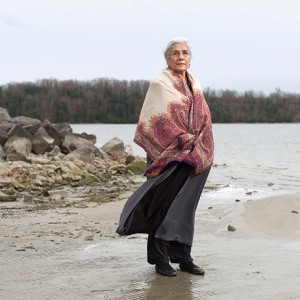 |
When Alia Hogben took over the Canadian Council of Muslim Women a decade ago as the group’s executive director, few could have predicted the long-time bureaucrat from Ontario’s ministry of community and social services would emerge as one of the most compelling liberal voices of Islam in Canada. Her moderate Muslim perspective is indispensable. As a 2012 Order of Canada recipient, awarded for her work on women’s rights and promotion of interfaith dialogue, she is only the second female Canadian Muslim to receive that honour. She also has an honorary doctorate from Queen’s University and a column in the Kingston Whig-Standard, where she’s written how she was discouraged that many people, such as members of Islamic State, use religion as justification for unspeakable crimes. Recently, Hogben told the Canadian Press she’s disheartened that Stephen Harper did not denounce the anti-Muslim backlash in the aftermath of the Ottawa shooting. But Hogben is not one to point fingers. Rather, she champions Islam’s message of inclusivity. — Aaron Hutchins
#23. Galen G. Weston
More than that guy on TV
![]()
![]()
![]()
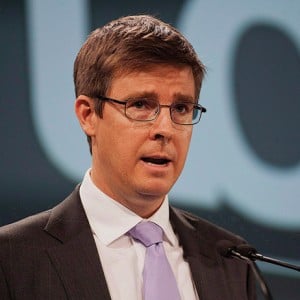 |
More than a pitchman for President’s Choice, Galen G. Weston cemented his reputation as a visionary corporate deal-maker after closing Loblaw’s $12.4-billion acquisition of Shoppers Drug Mart earlier this year. Now the Weston family scion is stepping further into the weeds of the business as president of the merged company, in addition to being its executive chairman. He will not only oversee the grocery giant’s overall strategy as it does battle with U.S. interlopers Wal-Mart and Target, but its daily operations, too.
With the expanded role comes increased expectations, but Weston has so far proven adept at navigating a challenging, consumer-focused industry that plays an almost daily role in many Canadians’ lives. The recent relaunch of Loblaw’s popular PC line, with a focus on removing artificial colours and flavours from everything from ice cream to spaghetti sauce, suggests a company in tune with changing tastes. A more telling moment, however, was Weston’s heartfelt response to last year’s collapse of a Bangladesh factory that churned out Joe Fresh clothing. Instead of pointing the finger at suppliers or pulling production from the country altogether, Weston took immediate responsibility and promised to be a force for good. So far that includes a pledge to compensate families of the 1,129 victims—regardless of whether they produced clothing for Loblaw or a competitor—donating to local charities and becoming one of the few big North American retailers to push for improved building and fire standards in the South Asian country. — Chris Sorensen
#22. Jim Prentice
Man and moment’s perfect match
![]()
![]()
![]()
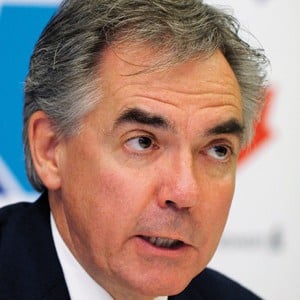 |
Alberta’s Progressive Conservatives swept four by-elections Oct. 27, sending opposition parties into a spiral of soul-searching and confirming that Albertans are prepared to give their new premier a chance. Jim Prentice, 58, walked away from a seven-figure CIBC salary to rescue the ethically challenged party whose continuous control of Alberta’s legislature has entered year 44. Even those who are exhausted by one-party rule in the province acknowledge the perfect match between man and moment. Prentice combines private sector accomplishment, strong business connections from Calgary to Bay Street, and decades of working with and for First Nations, who increasingly wield a moral veto over the pipeline infrastructure Alberta wants. An old Red Tory from the Joe Clark family tree, Prentice served as a roving talent in Stephen Harper’s cabinets without making pratfalls or visible enemies. To keep the Alberta PCs from dying of complacency, he’ll need all that ability. And a bounce-back in oil prices wouldn’t hurt. — Colby Cosh
#21. Naomi Klein
She changes everything
![]()
![]()
![]()
 |
Naomi Klein, 44, is one of the most internationally celebrated Canadians alive, and when it comes to influence based entirely upon persuasion—as opposed to the inherent political or economic power of a position held—she has few peers in this country. Klein is impeccably connected to counterculture royalty. The daughter of one documentary filmmaker—Bonnie Sherr Klein, famous for her anti-pornography movie Not a Love Story—Klein is married to another, Avi Lewis, son of journalist Michele Landsberg and former Ontario NDP leader and Canadian ambassador to the UN, Stephen Lewis. But her reach arguably exceeds even her father-in-law’s. From No Logo (2000) to This Changes Everything (2014), Klein’s bestselling and award-winning critiques of globalized capitalism and climate change—translated into dozens of languages—have been touchstones for the political left, not only in Canada but worldwide, and hailed as incisive manifestos for socio-economic change. — Brian Bethune
#20. Thomas Mulcair
Betting substance trumps style
![]()
![]()
![]()
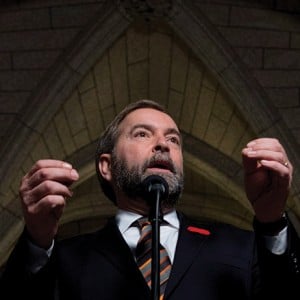 |
Up against Stephen Harper, a formidable long-serving incumbent, and Justin Trudeau, a flashy poll-topping interloper, Thomas Mulcair continues to more than hold his own—at least in the House of Commons. With his precise interrogative style, he’s the acknowledged master of question period. But this fall, the New Democratic Party leader is trying a new strategy—without giving up his prosecutor-in-chief mantle. Mulcair has begun, about a year before the federal election slated for Oct. 19, 2015, to roll out detailed policy. The first big push was for a federal program aimed at providing $15-a-day daycare, with any province an NDP government in Ottawa could coax into a deal. Mulcair even ventured on CTV’s daytime talk show The Social, which is co-hosted by four women, to try to sell his child care plan. So far, the polls don’t show him gaining on Trudeau, but Mulcair is betting that against a charismatic rival, his best shot at real power might just come from real policy. — John Geddes
#19. Jean-Marc Vallée
You could be my shining star
![]()
![]()
![]()
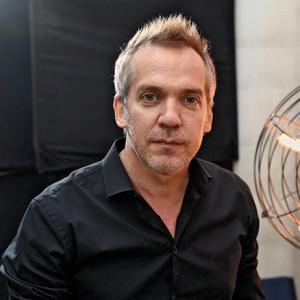 |
There aren’t a lot of directors in Hollywood with a reputation for turning around the careers of fading stars, but this 51-year-old Montreal native may be one of them. His second U.S. film, The Dallas Buyers Club, completed Matthew McConaughey’s transformation from affable lightweight into Oscar-winning drama star; before that, the period film The Young Victoria helped Emily Blunt erase the stigma of The Jane Austen Book Club. Now Vallée is back with the survival drama Wild, where Reese Witherspoon—who has mostly starred in failed romantic comedies since her 2006 Academy Award—stars as a woman hiking across the U.S. on a voyage of self-discovery and R-rated language. With his reputation for getting the best performances out of actors whose depths haven’t been explored, Vallée may be on the way to becoming a first-choice director: Witherspoon, who owned the rights to Wild’s source material, personally chose him over more famous names. — Jaime J. Weinman
#18. Art Sterritt
A little louder than silence
![]()
![]()
![]()
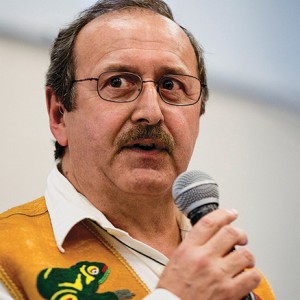 |
It is hard to imagine a more powerful opponent to the proposed Northern Gateway pipeline than Art Sterritt. The executive director of the Coastal First Nations, an influential lobby representing nine B.C. bands, he acts as an unyielding barricade to the 1,170-km pipeline that Canada’s oil industry dearly wishes will deliver Alberta crude to the coast.
“The facts are clear. Accidents happen, cleanup is impossible,” says Sterritt, 66, noting that BP has cleaned up less than one-third of the oil discharged into the Gulf of Mexico in the wake of the Deepwater Horizon disaster. In B.C., a spill would mark “the end of the coast as we know it,” he says, adding, “the end of our livelihood.”
In a recent PR coup, Sterritt, as amiable as he is intimidating, convinced Paul Simon to lend his song The Sounds of Silence to an anti-Northern Gateway TV ad, featuring haunting images from the Exxon Valdez spill, one of history’s most devastating. He is a chief architect of the Great Bear Rainforest agreement, which protects the world’s largest intact coastal rainforest from logging. It was Sterritt who declared the ban on grizzly hunting that chased trophy hunters off the traditional territories of the Coastal First Nations, and Sterritt who barred tankers from entering their waters. Ignore him at your peril, B.C. governments have learned.
But while Sterritt, the son of a Gitxsan hereditary chief, is militant, he’s not inflexible. He’s thrown his considerable heft behind B.C.’s nascent liquefied natural gas industry, a move that has put him at odds with his allies in the environmental movement. If spilled, liquefied gas would evaporate, he explains. Bitumen, on the other hand, would be impossible to clean up. “Our well-being is dependent on the health of our lands and waters,” says Sterritt. “And our lands and waters are now dependent on us.” — Nancy Macdonald
#17. Joe Oliver
The outsider on the inside
![]()
![]()
![]()
 |
Joe Oliver, Canada’s 74-year-old federal finance minister, automatically wields clout as the man governing the economy. With an election under way, that influence extends to shaping and selling the Conservative party’s spring budget/campaign platform focused on tax cuts—along with mobilizing the party in Toronto, where he represents Eglinton-Lawrence. The Montreal native, who holds a McGill law degree, a Harvard M.B.A. and names Margaret Thatcher as a hero, exudes a staid earnestness destined to be an asset when selling fiscal probity. Oliver’s establishment insider connections don’t hurt, either: he was elected in 2009 at age 69 after five decades on Bay Street—first in investment banking, then heading the Investment Dealers’ Association. Appointed Natural Resources minister as a rookie MP, he proved a tireless, if controversial, defender of industry. He sailed into Finance this spring when Jim Flaherty left politics. Now he’s centre stage as fiscal front man—and cannily without stealing too much of the spotlight. — Anne Kingston
16. Christy Clark
A pro at beating the odds
![]()
![]()
![]()
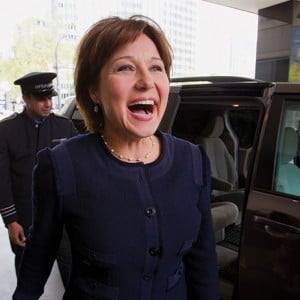 |
Christy Clark did the unthinkable in the last B.C. election, raising the prostrated Liberals from the dead, winning the election for a party whose brand was so tarnished, it was considering a name change. The B.C. premier did it by promising voters a bright, new day—100,000 jobs and a trillion-dollar economic opportunity by kick-starting liquefied natural gas (LNG) development in the province’s north. On the hustings, she is magnificent. No one active in politics in Canada today can match the 49-year-old at the old-school game of retail politicking. Her magnetism, megawatt smile and innate charisma are rare gifts. But, just as Clark’s fate rested on LNG last year, her re-election in 2017 will hinge entirely on her ability to get at least one of the potential gas projects up and running. The odds are long, especially as the price of gas continues to crater. But Clark has made a career out of beating them. — Nancy Macdonald